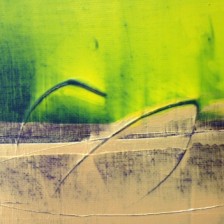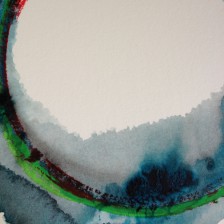“Thirty spokes share the wheel’s hub; / it is the center hole that makes it useful.”
(Lao-Tse)
Throughout human history in cultures around the world, people have argued over whether or not an ultimate power exists. This disagreement has resulted in creative brilliance, and in destructive cruelty.
What lies at the heart of life,
and how can we choose
brilliance?
A meditation offered at the Unitarian Universalist Church of Spartanburg on Sunday, July 30, 2017.
A recording of the sermon may be found here:
An excerpt from the text of the sermon may be found here:
+++
Let me go straight to the heart:
Is there something, or is there nothing?
Is there an ultimate power in our world, or not?
Does a God exist, or something else, or is there simply
nothing at all?
Throughout human history, in cultures around the world,
people have been arguing about this.
We peer into our lives, we peer into the cosmos,
and we come back with very different answers.
And the disagreement has often not gone well.
People have been arguing with each other,
yelling at each other,
disowning each other,
killing each other
over what the nature of ultimate reality is
for a long, long time.
It seems so often
to bring out the very worst
in us.
There are so many good reasons
not to believe in God—
not least the absence of justice in our world.
And yet even when we stare into nothingness
a magic moves,
connections that should not happen,
a kindness in people who have no reason to be kind,
a presence, a breath.
What is this? What is the ultimate nature of reality?
Teofilo Ruiz, a scholar of history who teaches at UCLA,
calls this “The Terror of History”.
We could call it as well “The Terror of Life” or “The Terror of Existence”.
Ruiz, who was born in Cuba and fought against Batista in the revolution there
until himself being imprisoned and eventually fleeing to the United States,
Ruiz, whose first name, “Teofilo”, means “Loved by God”,
Ruiz argues that at the center of our existence lies an emptiness
that terrifies us,
threatening us with disorder and chaos and meaninglessness,
against which we as individuals and societies react—
often with violence, trying
through the exclusion and oppression of a marginalized other
to establish ourselves more solidly and safely against our own essential
nothingness.
And we have seen this week
the irony of this—
how forces of chaos and disorder
lashed out against those of us
who are transgender,
seeking to demean and distract
in order to shore up
fast eroding power.
And we should be quick to check our own smugness.
Every administration,
every person,
every one of us
has a propensity to do this.
If we are people of justice,
we must be truly just.
We can gaze into our lives
and see within them
an emptiness and a nothing
that frightens us,
and in an attempt to make ourselves feel safe
we act with cruelty
even toward the very people
willing to risk their own lives
for our safety and security
people who would give their lives
to protect our own.
We can be such cruel, foolish creatures.
We can be so endlessly unjust.
The paradoxes here only mount:
there are people who are ardent atheists
whose lives evince such goodness
that we could rightly claim to see in them
exactly the love and wisdom and justice
often attributed to divinity—
we see in them
exactly who God should be
if a God existed.
and there are people who are ardent theists
whose lives wreak such destruction
on those around them
in the name of all they call holy
that their actions are themselves
the strongest argument against
the very God
in whom they so zealously believe.
And vice-versa:
there are people
of every belief and non-belief
who have acted with such callousness and cruelty
taking the fate of one person or millions into their own hands
because they could,
believing themselves exempt from
the just consequences
of their unjust actions—
both in this world
and in others that may be.
And there are people
of every belief and non-belief
whose lives preach love,
walking among us,
using words only when necessary.
What are we to make of this dichotomy?
Who is right, and how can we live
lives that speak
the deepest and best
of what human being can be?
Perhaps the greatest paradox of all in this
is that for all of our disagreements and endlessly different perspectives,
we share a reality.
We seem fated never to agree
and yet here we all are, living
whatever this is.
Mystics of every spiritual tradition
have urged us
not to think in strict binaries
that can harden into dogma
but instead
to gaze into our shared reality,
into whatever this is,
and to live in tune with it.
Whether there is
something
or nothing,
here we are,
and these teachers through time
—of all kinds, theist and atheist and agnostic and all other possible variations alike—
urge us to gaze into our shared reality
whatever any of us calls it,
to gaze into our reality
which may seem empty, and meaningless, and may strike us with terror
but to pass through that fear
with courage,
to pass through
to something deeply human and possible
in us:
a something that comes from nothing.
They speak to us from every path,
including from that most stringent of mystical paths, science—
which asks
with every new discovery
a relentless and endless “Why?”,
which teaches
that on the atomic level
we are in large measure
nothing—
empty space,
a nothingness
through which the smallest particles move.
But so what? Why does any of this speculation and philosophy matter in the real world?
And I think the answer is
exactly because our lives matter in this world
how we face this world
whether with fear
or with courage
and how we treat one another in it
whether with exclusion and oppression
or with wisdom and compassion
matters for existence.
Our existence.
All of us.


Leave a Reply